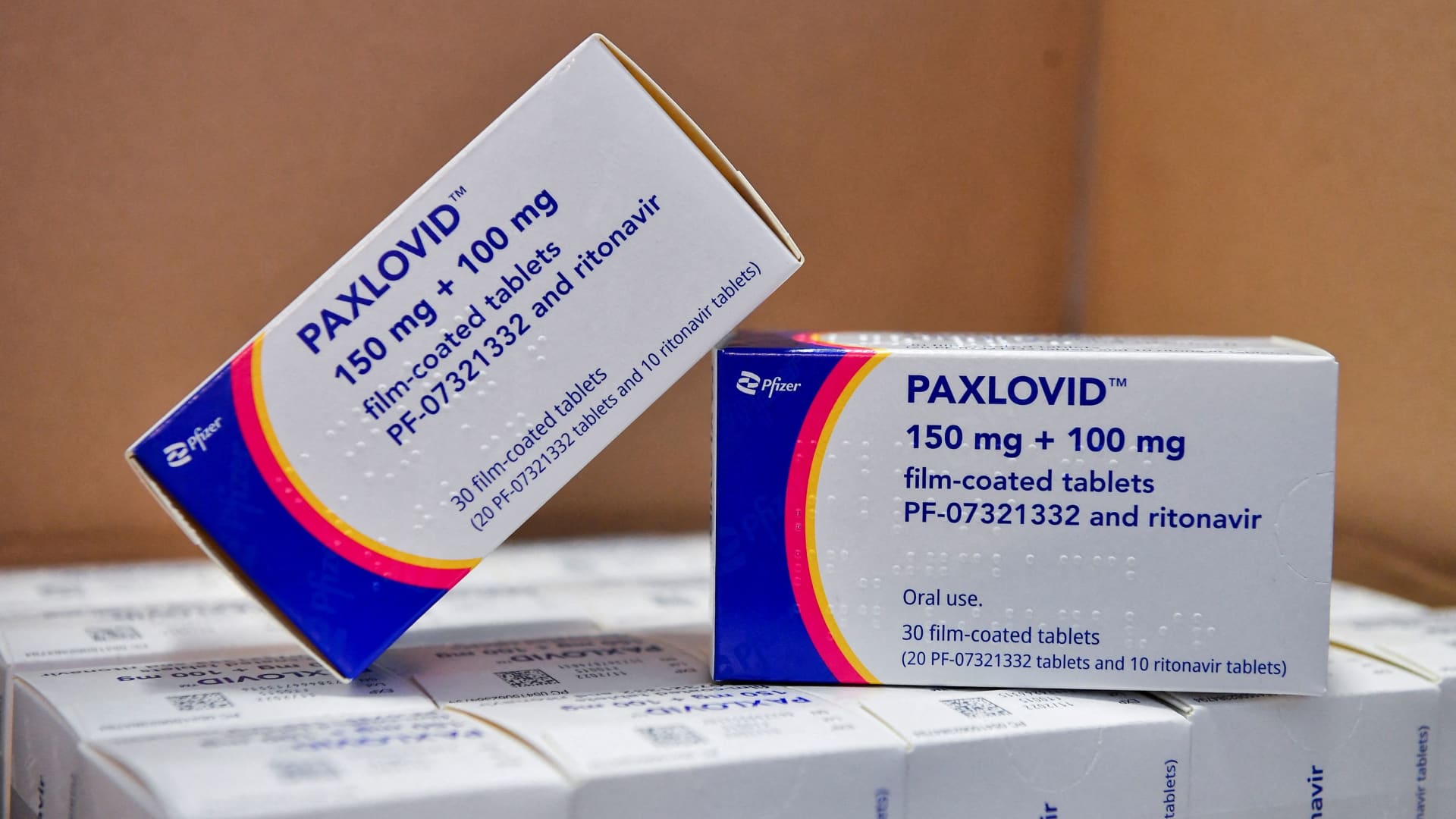
The Food and Drug Administration on Thursday granted full approval to Pfizer’s Covid antiviral pill, Paxlovid, for adults who are at high risk of getting severely sick with the virus.
Paxlovid is specifically advised for the treatment of mild to moderate Covid in adults older than 50 and people who suffer from certain medical conditions that place them at a higher risk of ending up in the hospital or dying from Covid.
That includes those who have diabetes, heart conditions, cancer or a weak immune system.
As many as three-quarters of adults in the U.S. are at risk of severe Covid.
“Today’s approval demonstrates that Paxlovid has met the agency’s rigorous standards for safety and effectiveness, and that it remains an important treatment option for people at high risk for progression to severe COVID-19, including those with prior immunity,” Dr. Patrizia Cavazzoni, director for the FDA’s Center for Drug Evaluation and Research, said in a press release.
The FDA first made Paxlovid available in December 2021 under emergency use authorization for high-risk individuals ages 12 and up. Under that designation, the FDA quickly approved the treatment based on preliminary clinical trial data.
The FDA’s latest decision means there is now extensive clinical data indicating Paxlovid is safe and effective.
The treatment consists of two medications: nirmatrelvir, which blocks a key enzyme that the Covid virus needs to replicate, and ritonavir, which boosts the first medication’s ability to fight the infection.
Both Pfizer and the FDA view the treatment as an important complementary tool to vaccination that can help high-risk Americans manage their Covid infections and ultimately save lives.
FDA researchers estimated, based on Covid rates in January, that Paxlovid could “lead to 1,500 lives saved and 13,000 hospitalizations averted each week” in the U.S.
But it’s unclear how many people will take the treatment later this year.
The U.S. government has 1.1 million courses of the treatment available at pharmacies nationwide for free, according to federal data, and signed a deal late last year to order more.
Once that stockpile runs out, the government expects to shift the distribution of Paxlovid to the commercial market.
That means Pfizer will sell Paxlovid directly to health-care providers at a price the company hasn’t disclosed. Paxlovid is priced at about $530 per course now.
Pfizer, which saw Paxlovid sales jump to nearly $19 billion in 2022, expects revenue from the drug to drop 58% in 2023.
In March, an independent panel of advisors to the FDA recommended the treatment based on three of Pfizer’s clinical trials.
One trial examined high-risk adults who were unvaccinated and had no prior Covid infection.
That trial found Paxlovid reduced the risk of hospitalization or death by 86% in adults treated within five days of their first symptoms, and 89% in those treated within three days, according to an FDA review of the company’s data.
No major safety concerns were identified in the trial, the review said, though the agency flagged 137 medications that may lead to serious adverse reactions if they interact with Paxlovid.
The FDA said the most common drugs that caused safety issues were immunosuppressants, which are often used to treat HIV and organ transplant patients.
The FDA’s office of surveillance and epidemiology recorded 271 reports of serious adverse events potentially related to drug interactions with Paxlovid, including 147 hospitalizations and six deaths, as of late January.
FDA staff said those events could potentially be avoided by adjusting the dose of certain drugs, increasing patient monitoring and ensuring that product labeling informs prescribers and patients of potential drug interactions.
For some doctors, another area of concern is Paxlovid “rebound cases.” That’s when patients who take the treatment see their Covid symptoms return or test positive shortly after they initially recover.
Reports of those cases cropped up not long after Paxlovid first entered the market.
Both President Joe Biden and his former chief medical advisor Dr. Anthony Fauci seemingly recovered from Covid after taking the antiviral cocktail but tested positive again soon after recovering.
An FDA review of Pfizer’s clinical trials found overall rates of rebound ranged from 10% to 16%, “with no evidence of a higher rate of symptom rebound or moderate symptom rebound” in patients who received Paxlovid compared with patients who received a placebo.
Those results also held regardless of patients’ risk of severe disease, or whether the omicron variant or an earlier strain of the virus was dominant, according to the FDA review.







